I want to share some personal reflections on what surfing has taught me in the ten years I have been doing it. I took up surfing at the age of sixty because of my daughter, and it has profoundly impacted my life in ways I never anticipated.
Old Evangelists Can Learn New Tricks
Starting to surf at sixty is, to put it mildly, suboptimal. Most people begin surfing between the ages of eight and fifteen, so I was about fifty years late to the game.
However, this experience taught me that it’s never too late to discover a new passion. Aka, Carol Dweck’s concept of the growth mindset is the key here: you can learn new skills.
The initial challenges were immense—balancing on the board, reading the waves, and paddling out—but each obstacle was a lesson in perseverance and resilience.
Nature Doesn’t Give a Shit Who You Are
Surfing has a unique way of connecting you with nature. The ocean is a powerful force, and it commands respect. Trust me, I’ve been in situations that left me shaken up, injured, and in pain.
One of the first lessons I learned was to never turn my back on the ocean. This isn’t just practical advice to avoid rogue waves; it’s a metaphor for life. Always stay aware and respectful of the forces around you because waves don’t care how many books you’ve written, how many followers you have, or what you’re worth.
Physics and Equipment Matters
Increasing your skill level requires using the right equipment. Trying to learn surfing with a board designed for advanced surfers is like learning to drive a race car. The general principles of physics apply: longer is faster, wider is more stable, thicker floats better, and thinner floats worse. And getting hit by foam hurts less than getting hit by fiberglass.
Which means a beginner should use a long, wide, and thick board made out of foam. And like it or not, beginners can either look cool carrying a small board on the shore or catch a lot of waves in the water. The lesson is to get the right equipment for your level of expertise.
The Best Surfer Isn’t Necessarily the Best Instructor
Related to equipment selection is advice selection. The natural thing to do is to ask good surfers for advice. I’ve found that if you ask five good surfers for advice, you get eight different answers. And their advice directly conflicts: longer board/shorter board, wider board/narrower board, smaller fin/bigger fin, etc.
The problem with asking good surfers for advice is just that: they are good surfers. They have probably forgotten what it took to become a good surfer—maybe they were even “gifted” and quickly and easily became a good surfer. So asking Simone Biles and Suni Lee how to become a gymnast may not be optimal. If you examine the backgrounds of athletic coaches few were world-class competitors earlier in their careers.
You Don’t Catch 100 Percent of the Waves You Don’t Paddle For
Most of surfing is spent paddling and waiting. In a recent two-hour session, I was actually riding a wave for only two minutes and forty-four seconds. The time between rides was more than eight minutes.
There is a tradeoff between trying to catch too many waves and not trying to catch enough. But one thing is for sure, you don’t catch 100 percent of the waves that you don’t paddle for. This is the surfing version of the quote attributed to Wayne Gretzky: “You miss 100 percent of the shots you don’t take.”
Making Your Decision Right Is Just As Important As Making the Right Decision
My experience is that making the right decision about which wave to catch is the hardest part of surfing. There are so many factors to consider: wave size, direction, speed plus what other surfers are doing, equipment, tide level, wind, location of kelp and rocks—and I’m sure I’m leaving factors out.
But suppose you embrace the Wayne Gretzky philosophy and turn and paddle for a wave that you think works. At that point, you need to forget about making the right decision and make your decision right. That is, you commit to a course of action and then adjust to make that course of action work even if your decision wasn’t perfect.
The Family That Surfs Together, Stays Together
One of the most beautiful aspects of surfing is that it has become a family activity. To be honest, I took up surfing in the first place because my kids did. I surf with all four of my children, and it’s one of the few sports that people of varying skill levels can enjoy together. Whether you’re catching small waves or tackling larger ones, the joy of being in the water together is unparalleled.
Speaking of family, the most important person is a surfer’s life, after his family, is his shaper. In my case this is Bob Pearson of Pearson-Arrow. You’ll come to this conclusion eventually too.
The Journey Is the Reward
I will never be a great surfer, but I will be as good a surfer as someone who starts at sixty can reasonably be. At any given time, my current goal is to be the best of the worst surfers in the water. Over time, I want to become the worst of the best surfers in the water.
I won’t be sponsored or paid to surf. No brand wants my endorsement. But surfing has enabled me to make remarkably good friends, stay in good physical shape, and as you learned, stay connected to my kids. There is no doubt in my mind that surfing has improved and extended my life.
A Code to Live By
Inspired by my experiences and the wisdom of fellow surfers like Shaun Tomson, I’ve come to appreciate the value of having a personal code.
Shaun’s Surfers Code includes principles like “I will never turn my back on the ocean” and “I will paddle back out,” which are not just about surfing but about living a life of integrity and courage.
I interviewed Shaun on my podcast—you can listen to his episode here.
Conclusion
Surfing has been more than just a sport for me; it’s been a teacher, a challenge, and a source of joy. It has taught me to embrace new experiences, respect nature, embrace vulnerability, and cherish the moments spent with loved ones. I hope these reflections inspire you to take on new challenges and find your sources of joy and satisfaction.
Stay remarkable,
Guy Kawasaki
By the way, my newest book Think Remarkable is now available and you can purchase it here.
And my latest episode of Remarkable People is with AJ Jacobs. In this episode, AJ shares his hilarious year of living by the Constitution’s original meaning, offering insights on democracy, rights, and civic engagement in modern America.
Tune in here!
Mahalo!




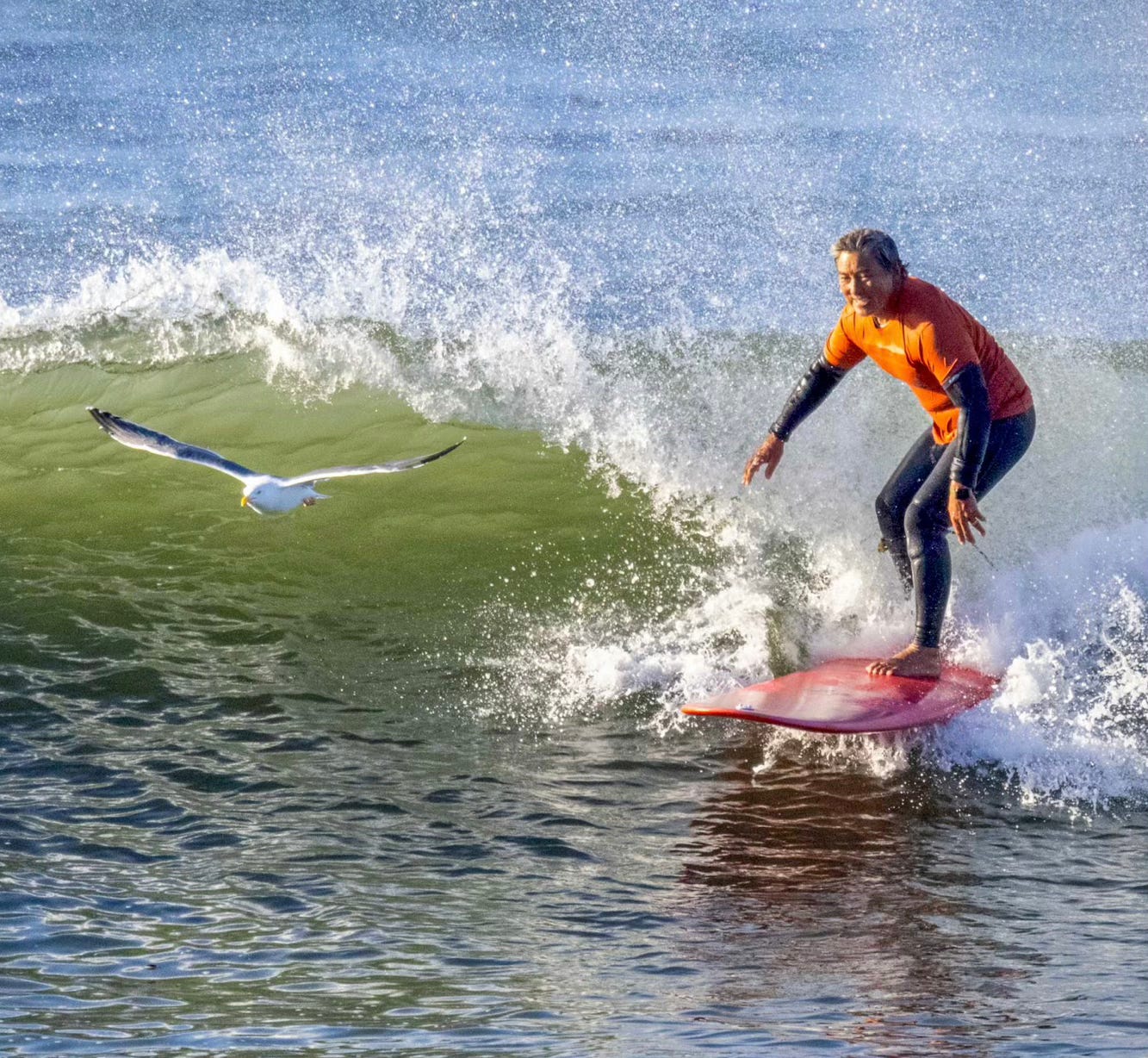
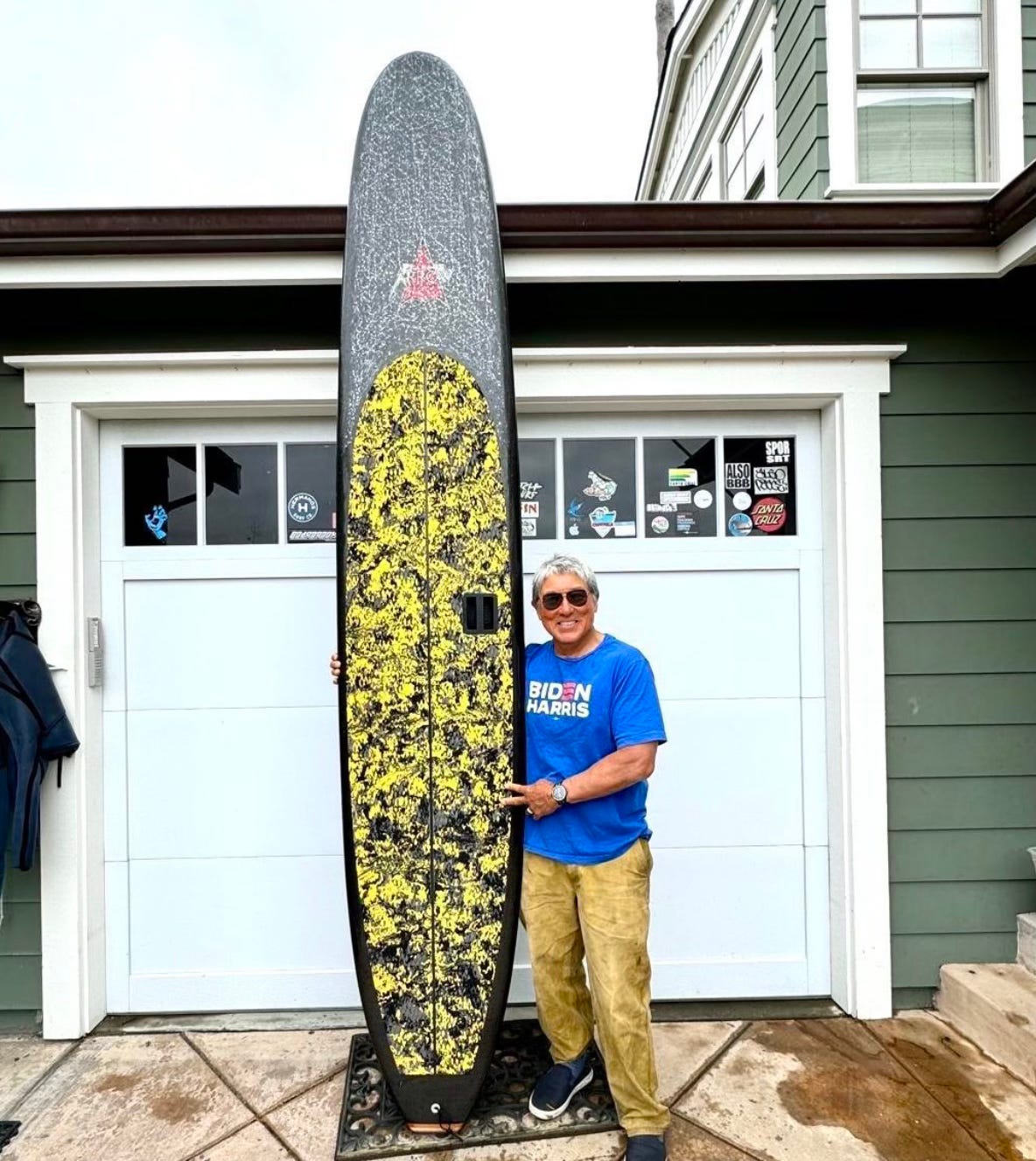
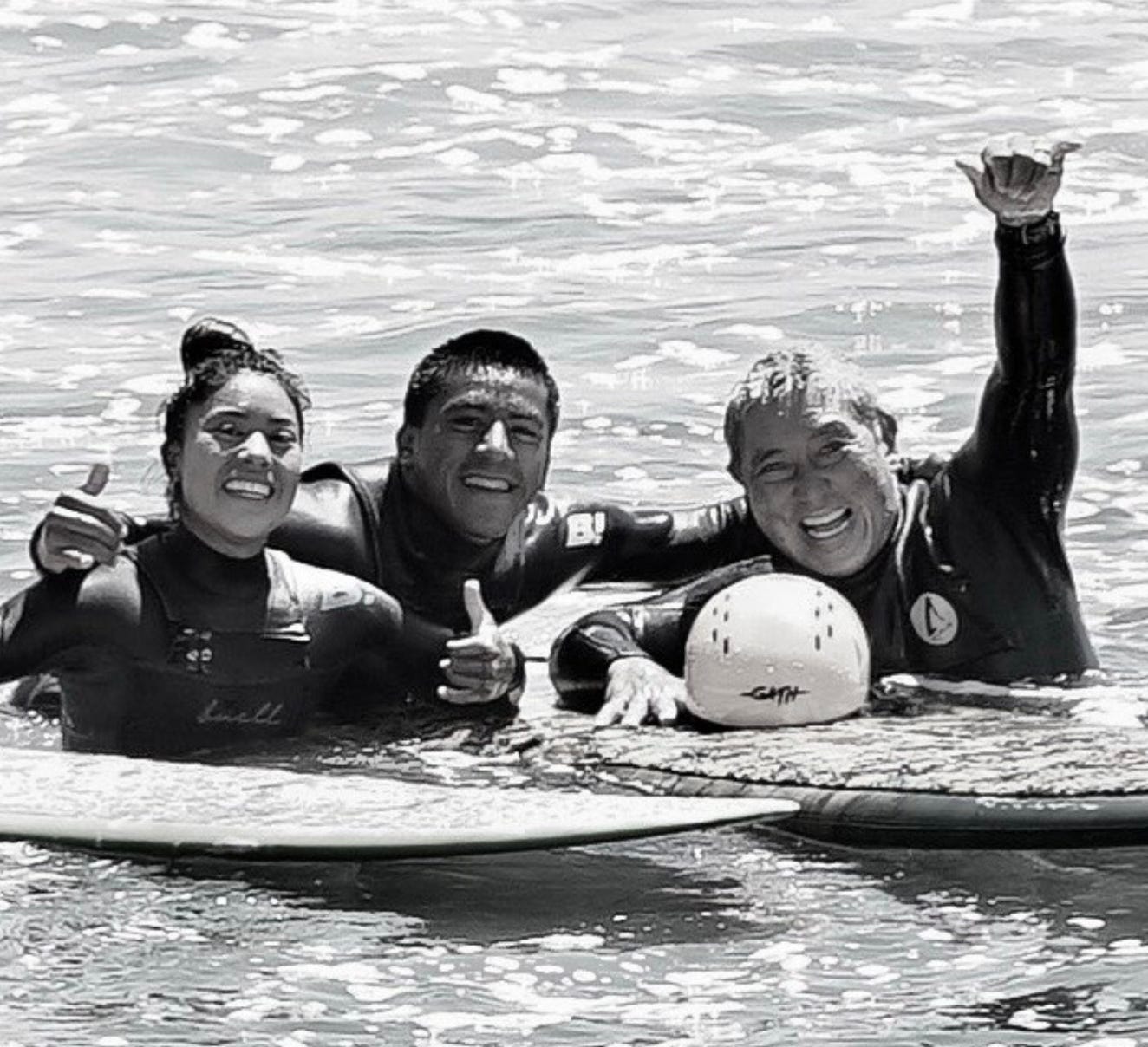
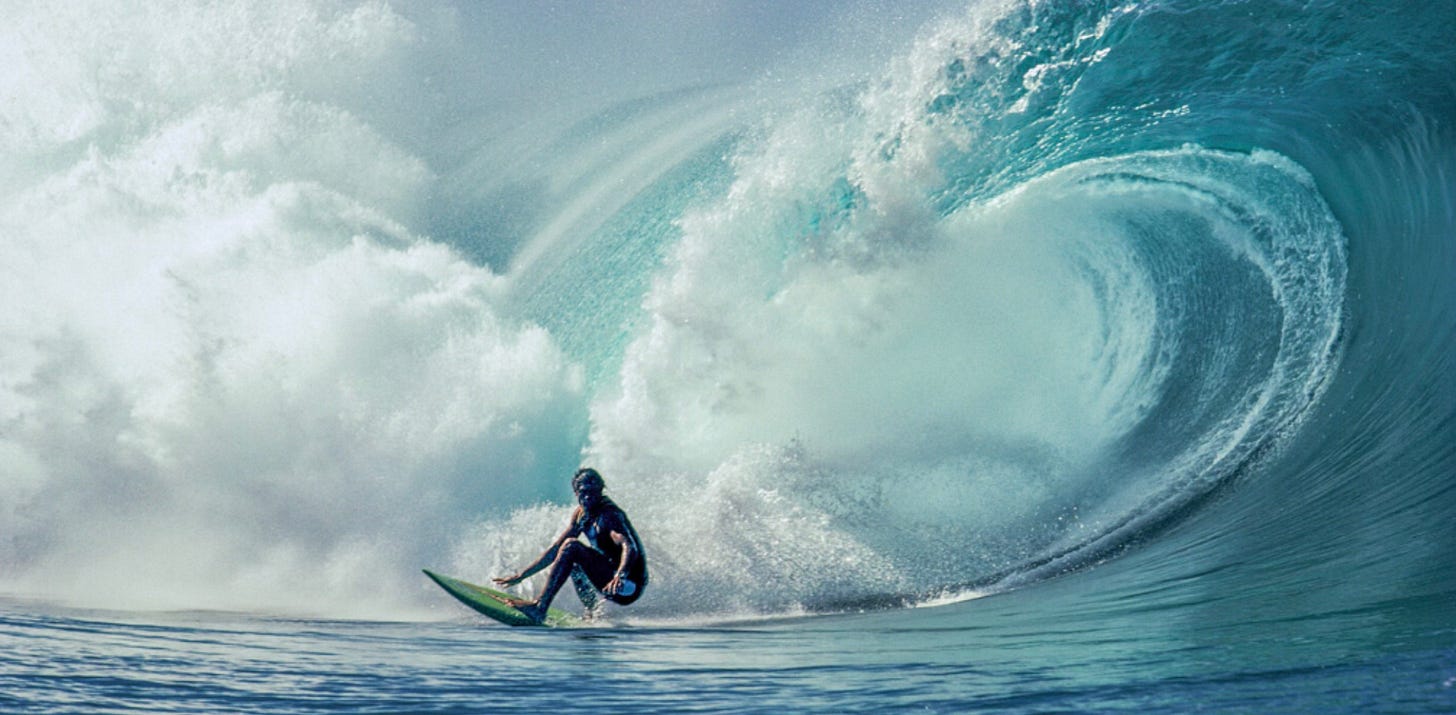
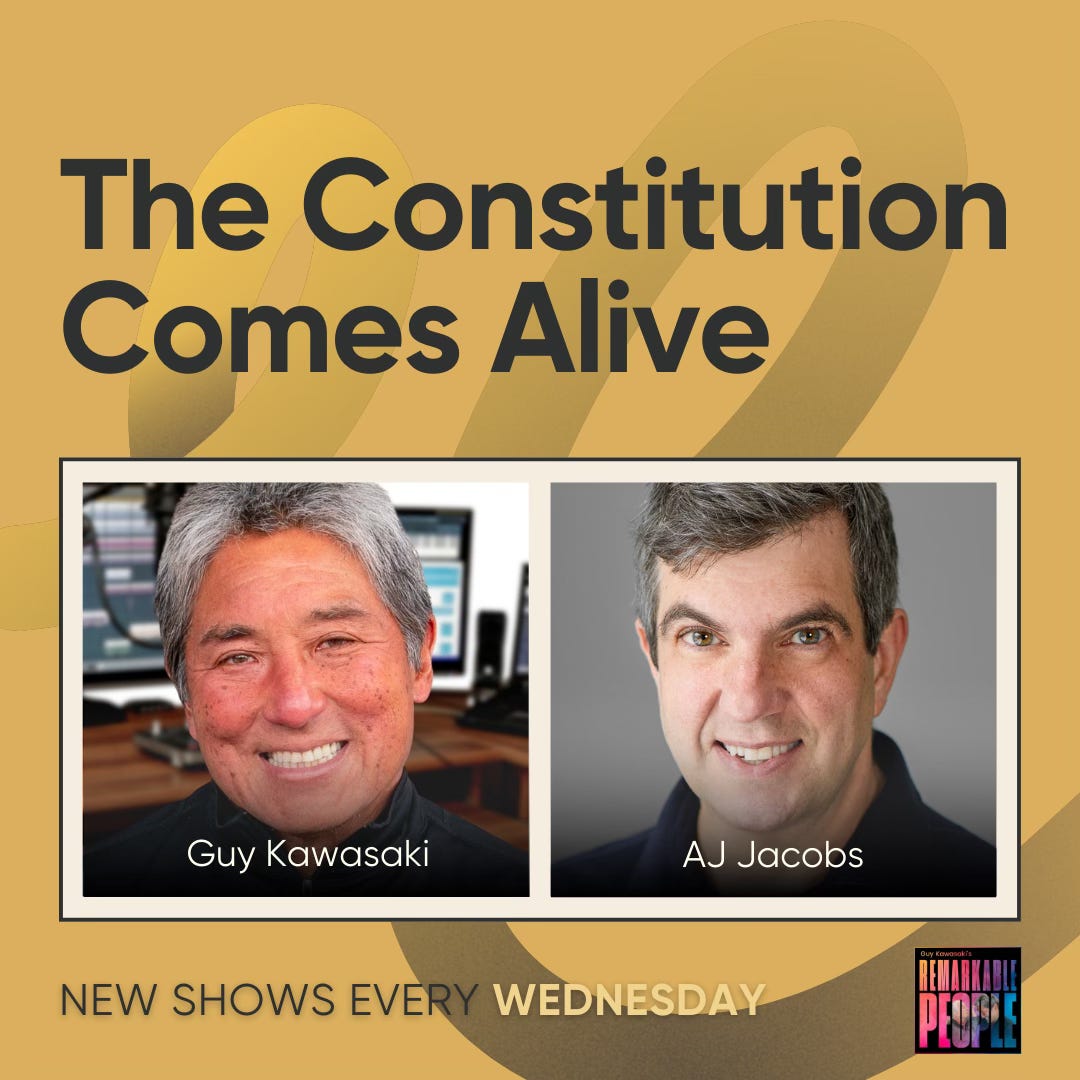
This is a great article. Sort of a Surfing and the Art of Entrepreneurial Maintenance. It got me thinking that there are hundreds of lessons from surfing that could be applied to entrepreneurship and life. Like: party waves are like having too many business partners - messed up!. And, finding balance on a board is like finding balance in work & life: challenging at first, better with practice. Or, when you get a 2 wave hold down and your board tombstones, your friends can't help you. As in business, you have to calm yourself, know which way is up and down, resurface, and get ready for the next beating. So much surfing wisdom here!
I’ve been a vacation surfer for over 10 years and recently started to surf again (more frequently than every 6-12 months when I’m on vacation) when I moved to Southern California a year ago. It has been so humbling to be in the white wash with a bunch of school age children and struggling to paddle out at times. Like you said — the ocean can care less who you are. I’ve been unlearning the grind and hustle mentality, the checklists of how-to, and feeling a certain way “do I really fit in as a ‘surfer’?” It has been practice, being present, and constantly listening & learning about the current moment. It’s what I learned in yoga and meditation — both practices that has helped me to be more in-tuned with my body. Now, I’m learning to be more connected with my body and nature. I am beyond proud I’ve continued to challenge myself because I feel surfing has truly changed the way I work and process difficult situations.